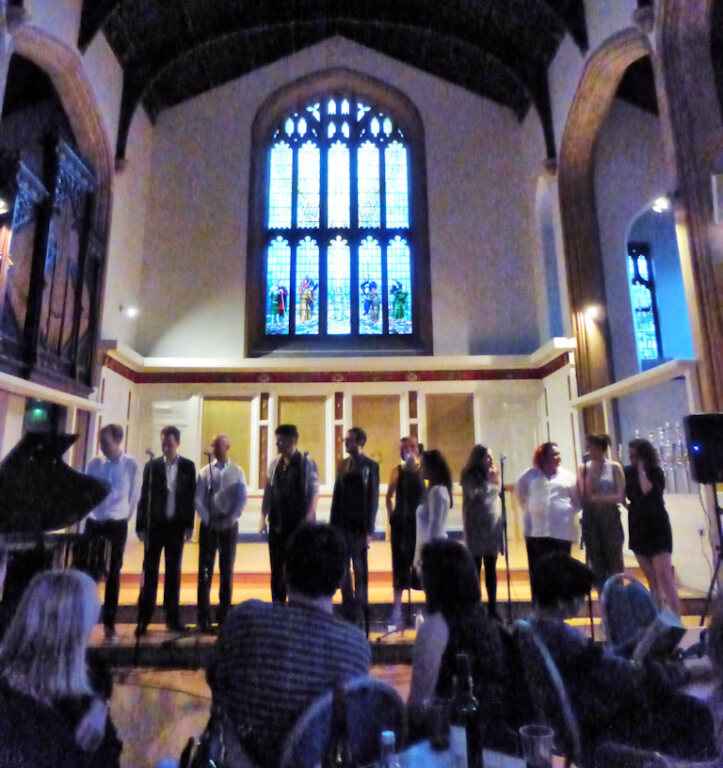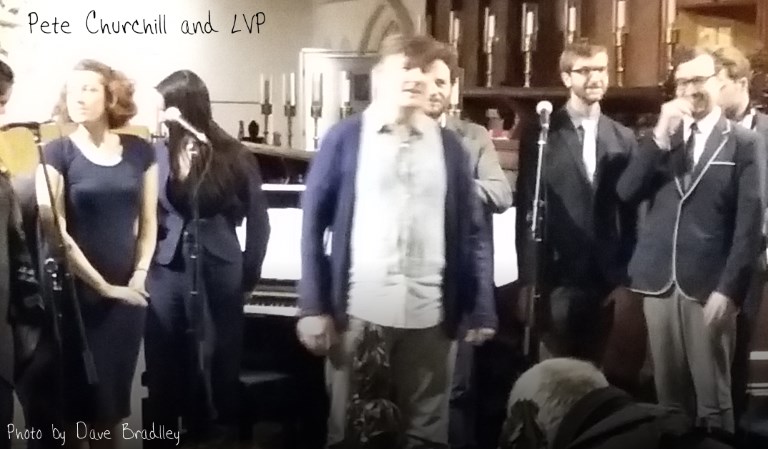UPDATE: We invited Pete Churchill and LVP back to Cambridge for another workshop and concert hosted by Cottenham’s bigMouth choir. It was afternoon and evening of 1st April 2017 and was an absolute blast, as inspirational as ever and such great fun, Mrs Sciencebase’s first singing gig too! We raised a goodly excess which we will donate to Jimmy’s in Cambridge.

Here are the tips I took away from the previous workshop, there were a few more insights this time, but the basics still rang true.
I took part in an excellent and inspirational singing workship with Pete Churchill of London Vocal Project (and much more) fame…I rattled off the takehomes from the day as a ten-point cribsheet yesterday, but just expanded them a little to share with my own ensemble, C5, ahead of our next performance. So, in case anyone wants to read my interpretation of Pete’s vocal wisdom, here you go…

- Get into the groove, feel the beat, get with the swing, get off the page!
- Understand the “form” (structure) of the song, don’t count bars, feel the rhythm and know where the repeats and codas fit
- Be aware of what the other singers and musicians are doing, from the top and right to the bottom, if you lose your place you can always revert to the melody (singers)
- Be aware of your breath, use your breath, it’s part of your voice
- Use the percussive plosives, the buh, pah, bah sounds for expressive emphasis, but obviously not on every b and p, give you singing dynamics
- You can hold the consonants not just the vowels, make them rich, “Fall in Llllllove” sometimes, don’t “Fall in Luuuuuv” every time. This is more of a jazz nuance, but useful to have in the back of your mind for bluesier/jazzier songs
- Start your oohs and aahs with a hushed “h” (h)oooooh, (h)aaaaah to protect your voice from hard ah, eh, ooh sounds that clack your vocal folds. Applies to the starts of lines not just harmony ooooohs
- You can hold vowel notes a little longer by changing the vowel sound as your breath expires, it does work, although I reckon it’s partly psychological but possibly just changes breath rate enough to give you extra time, it also sometimes leads to a bit of vibrato which allows you to sustain a note too.
- Feel and learn the sounds with your mouth, this is an ongoing thing for learning any song…and ties in with the following in terms of expressiveness and knowing a song better
- Your eyebrows can transmit emotion across to your audience, facial expressions hinge on the eyebrows and you can get away with a bit of exaggeration when singing to engage the audience in the song, apparently…in conversation you’d look silly doing this but people expect emotion from singers not deadpan blank stares…fundamentally (pardo the pun) music is emotion.